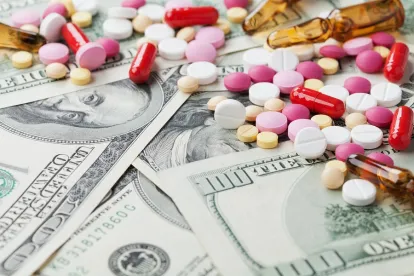Maine recently amended its Pharmacy Practice Act to prevent licensed manufacturers or wholesalers and their agents from offering or giving certain gifts to practitioners. The bill’s sponsor tied the issue of gifts from manufacturers and payments for speakers to the opioid crisis—the sponsor was reportedly inspired to draft the bill by a newspaper report that highlighted the fees that Maine physicians who prescribe opioids receive from pharmaceutical companies. That report listed the top 10 Maine physicians with the most “food and beverage” payments from opioid manufacturers.
The new law explicitly prohibits cash gifts to practitioners in any amount and prohibits gifts for which reciprocity is expected or implied. A “practitioner” is defined as “an individual who is licensed, registered or otherwise authorized in the appropriate jurisdiction to prescribe and administer drugs in the course of professional practice.” 32 Maine Rev. Stat. Ann. § 13702-A(29).
Some gifts are permitted under the law, such as gifts of “minimal value” that will directly benefit patients: drug samples for distribution to patients, educational materials and modest refreshments provided to a practitioner in connection with certain meetings or presentations. The meetings or presentations must occur in a venue and manner conducive to informational communication and address the benefits, risks and appropriate uses of prescription drugs or medical devices; disease states; or other scientific information. The law instructs the Maine Board of Pharmacy (the Board) to issue rules defining “modest meals and refreshments.” As the phrase “minimal value” is undefined, the Board could delineate what constitutes “minimal value” in a rulemaking.
The law also contains an exception for funding provided to academic institutions and residency and fellowship programs that support professional meetings. Such programs must identify funding recipients based on independent institutional criteria, and the funds must be distributed without specific attribution to the sponsors.
Finally, the law permits manufacturers and wholesalers to give “reasonable honoraria” to a practitioner and pay “reasonable expenses” for a practitioner at a professional or educational conference or meeting. The Board is expected to issue rules defining what constitutes reasonable honoraria or expenses.
The new law does not appear to prohibit many types of payments that would currently be permissible under industry standards for continuing medical education programs and events. That said, the Board’s regulations will likely have a substantial impact on its implementation. Those seeking to shape the boundaries of the new law should plan to participate in the Board’s rulemaking process.
The new law becomes effective 90 days after the adjournment of the current legislative session.



 />i
/>i
